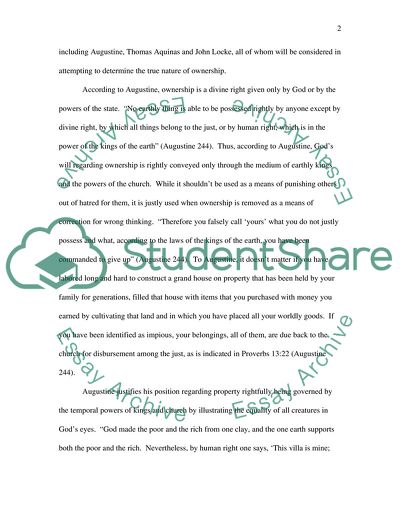Cite this document
(“Augustine, Aquinas and Locke: The Truth About Ownership Essay”, n.d.)
Retrieved from https://studentshare.org/philosophy/1543214-augustine-aquinas-and-locke-the-truth-about-ownership
Retrieved from https://studentshare.org/philosophy/1543214-augustine-aquinas-and-locke-the-truth-about-ownership
(Augustine, Aquinas and Locke: The Truth About Ownership Essay)
https://studentshare.org/philosophy/1543214-augustine-aquinas-and-locke-the-truth-about-ownership.
https://studentshare.org/philosophy/1543214-augustine-aquinas-and-locke-the-truth-about-ownership.
“Augustine, Aquinas and Locke: The Truth About Ownership Essay”, n.d. https://studentshare.org/philosophy/1543214-augustine-aquinas-and-locke-the-truth-about-ownership.


